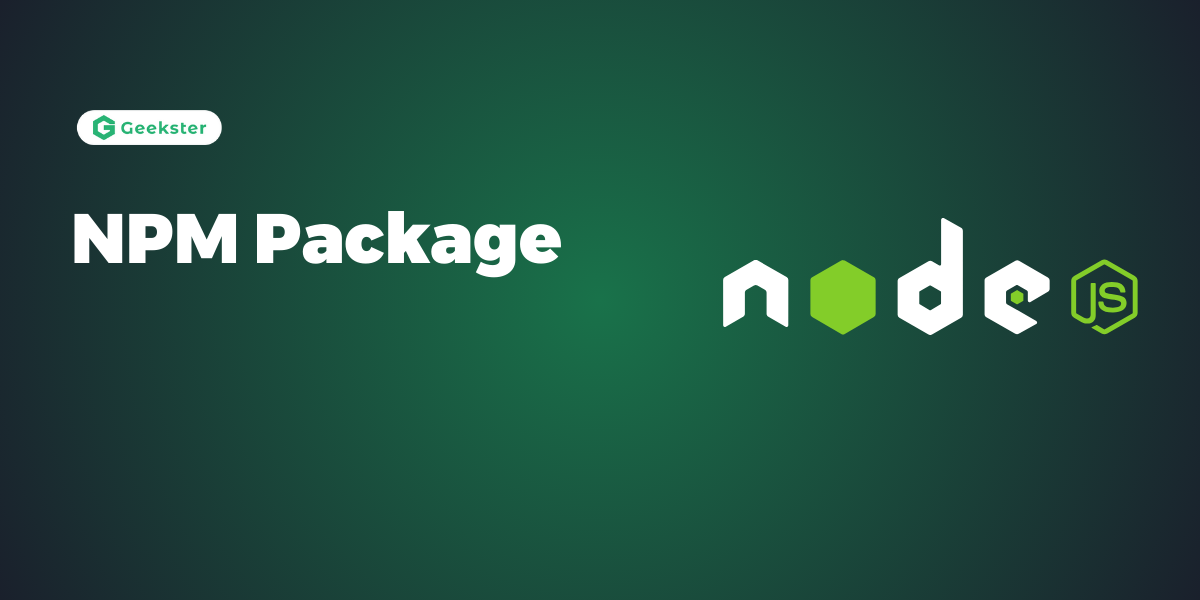Introduction
Node.js has a vibrant ecosystem of packages that extend its functionality and streamline development workflows. At the heart of this ecosystem is NPM (Node Package Manager), a powerful tool for discovering, installing, and managing packages.
NPM package are reusable units of code or libraries that can be easily installed and integrated into Node.js applications. These packages encapsulate functionality, providing developers with ready-made solutions to common programming challenges.
Features of NPM Package
1. Package.json File
The package.json file serves as a manifest for Node.js projects, specifying metadata such as project dependencies, scripts, version information, and other configuration settings. It also includes a list of NPM packages required by the project.
2. Dependency Management
NPM packages can be categorized into two types: dependencies and dev Dependencies. Dependencies are packages required for the application to run, while dev Dependencies are packages used for development or testing purposes.
3. Registry and Publishing
NPM maintains a centralized registry of packages, where developers can publish and share their packages with the community. Publishing packages to the NPM registry allows other developers to discover and install them using the NPM CLI.
Advantages of NPM Package
1. Code Reusability
NPM packages promote code reusability by providing pre-built solutions to common programming tasks. By leveraging existing packages, developers can save time and effort, focusing on building application-specific features rather than reinventing the wheel.
2. Dependency Management
NPM simplifies dependency management by automatically resolving and installing package dependencies. This ensures consistent and reliable dependencies across different environments, reducing compatibility issues and version conflicts.
3. Ecosystem and Community Support
NPM boasts a vast ecosystem of packages, with thousands of open-source libraries and tools available for use. This vibrant community fosters collaboration, innovation, and knowledge sharing, enriching the Node.js development experience.
4. Versioning and Updates
NPM packages follow semantic versioning (Sem Ver), allowing developers to specify version ranges and constraints in their projects. This enables automated updates and dependency resolution, ensuring projects stay up to date with the latest features and bug fixes.
Examples of NPM Package
1. Express.js:
Express.js is a minimalist web framework for Node.js that simplifies the development of web applications and APIs. It provides a robust set of features for routing, middleware, and template rendering, making it a popular choice for building web servers in Node.js.
2. Lodash :
Lodash is a utility library for JavaScript that provides functions for common programming tasks such as array manipulation, object manipulation, and functional programming. It offers a rich set of functions for working with data structures, enabling developers to write concise and efficient code.
3. Moment.js:
Moment.js is a library for parsing, validating, manipulating, and formatting dates and times in JavaScript. It provides a simple and intuitive API for working with dates and times, making it easier to handle complex date-related operations in Node.js applications.
Conclusion
NPM packages play a crucial role in the Node.js ecosystem, enabling developers to leverage a vast array of pre-built solutions and libraries for building robust and scalable applications. By harnessing the power of NPM, developers can streamline development workflows, enhance code reusability, and tap into the collective expertise of the Node.js community. As Node.js continues to evolve, npm packages will remain an indispensable tool for accelerating development and driving innovation in the world of JavaScript programming.
Frequently Asked Questions
You can install NPM packages using the NPM CLI by running npm install <package-name>command. This will download and install the specified package and its dependencies into your project’s directory.
Yes, NPM packages can be used in both frontend and backend development. While some packages are specifically designed for Node.js server-side development, many packages are also compatible with frontend JavaScript frameworks such as React, Vue.js, and Angular.
Yes, you can publish your own NPM packages to the NPM registry by running <npm publish>
command in your project directory. Before publishing, make sure to create a package. Json file with the necessary metadata and version information.

